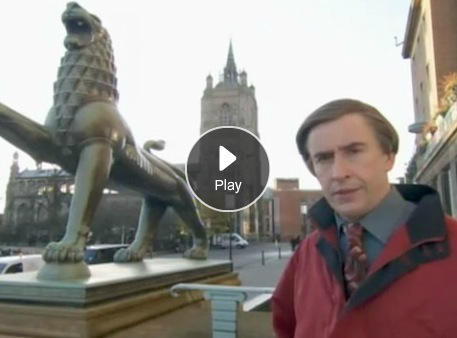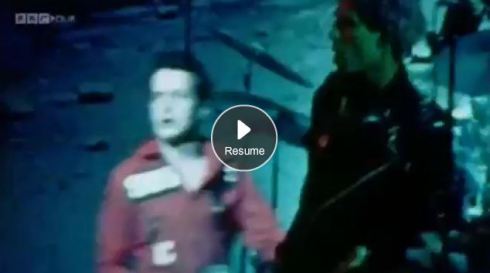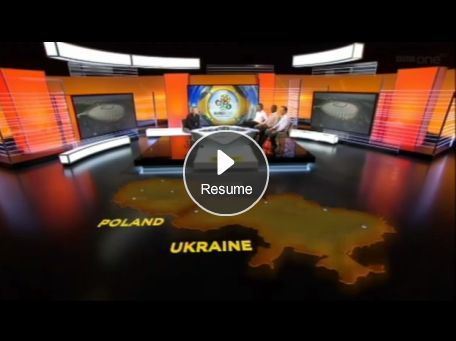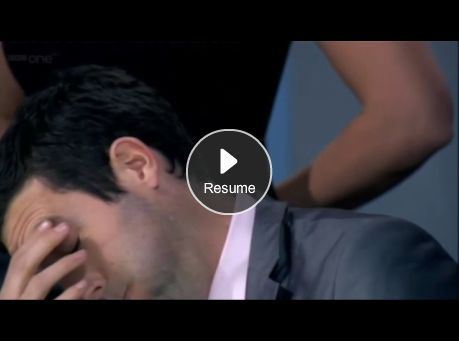Andrew Collins's Blog, page 36
July 5, 2012
The biggest prize in sport

+++++++++++++++++++++++Moan alert!++++++++++++++++++++++
Yes, the 2012 London Olympics are almost upon us. If you’re unlucky enough to live in London, your giveaway evening newspaper has been providing a thrilling day-by-day countdown which I think may have begun on 7/7 in 2005, the glorious day after the capital won the Olympic bid. I’m no fan of the London Evening Standard – which is given away free to grumpy commuters each night and, as such, is by definition worthless, although it can claim to be less unloved than the morning Metro – as you have to machete your way through so much propaganda in order to get to the actual local news, but it’s been especially impenetrable this year, with the Mayoral elections, the Jubilee, Heathrow and now the Games. It’s difficult to know where the editorial ends and the advertorial begins.
But hey, such blurring of truth and profit is very much in the spirit of the Games. I didn’t vote for the Olympics. Ordinary Londoners were never asked if we wanted the biggest sideshow in sport held here, and part-funded by our council tax. We were promised regeneration of some of the East End and Docklands. We were promised a fabulous upswing in commerce and opportunity (“Every sector of the economy will benefit from the staging of the Olympic Games”, went the bid). We were promised a second Westfield shopping centre. We were promised millions of tourists descending up our already full and already filthy city. Some of these dreams may yet come true – there’s a brand new Westfield now in Stratford, whose car parks have already been closed for the duration of the games – but estimates about how many people are coming here on holiday were hugely optimistic, as many non-Olympic “vacationers” have been understandably put off, either by the threat of crowding, or just being blown up.
Let’s contextualise my disinterest in the Games. As a punter I’m really not that bothered about athletics. Sport in general is not something that gets me going. You know I dabble with football, and I ended up watching that tennis match at last year’s Wimbledon that went on and on and on out of peer pressure, but as a rule, as a spectator, I prefer artistic rather than physical endeavour. That’s just my personal choice. I have nothing against sport, or sportspeople. I care about my health and used to love going to the gym when I could afford it. Better to do sport, whether it’s a kickabout in the park or the fully-fledged sacrifice of training for the Olympics, than sit around doing nothing. What I have against these Olympics is that, as a Londoner, I get all of the aggravation and none of the benefit.
It’s not just that the Tube and buses are going to be overcrowded, although that’s pretty annoying when your job involves a lot of travelling about in London, and, I expect, even more annoying if you have a nine-to-five job that can’t realistically be “done from home”. London’s bus drivers are threatening to strike for a bonus payment, as their jobs are going to be extra stressful between July 27 and August 12, and August 29 and September 9. But passengers can’t strike. We’re stuck with it. (I think anyone whose job is going to be made harder by the Olympics should be entitled to a bonus.)
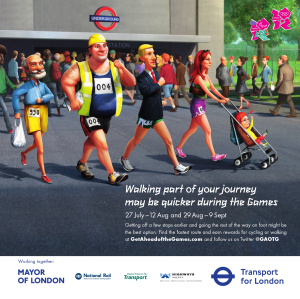
What I really object to is the relentless bombardment of corporate sponsorship. It seems tragic to me that sporting endeavour has to be privately funded. If we lived in the benign Communist utopia of my fevered dreams (and I haven’t worked out all the details yet), sport would be state-sponsored for the health of the nation and the pride of representing your country. So would the Arts. The minute you hand over the Games to advertising “partners”, and these “partners” are then able to literally dictate which credit card you use to apply for tickets, and which fizzy drinks you drink in the stadia, and which burgers you eat, then the sport comes a poor second to profit. And when even the top sports stars must flog their spandexed arses in TV ads in order to keep fit – Usain Bolt clowning for Richard Branson a typically undignified example; Victoria Pendleton getting her actual kit off for men’s magazines for more subtly commericial returns (FHM: “Victoria has the sort of legs that could, should you inadvertently find yourself in a sexual embrace with the woman, kill you”) – it’s a sad world indeed.

As a user of the already creaking London Transport network, I have for some time been assailed on all sides by adverts telling me not to travel in London during the Olympics and the Paralympics; to stay at home; to choose an alternative route; to avoid certain lines and stations; to fuck off. Even worse, there are ads everywhere put up by Procter & Gamble, the American multinational petrochemical giant, whose $82.6 billion turnover for 2011 is helping to fund a big chunk of the Olympics. P&G, as they’d prefer us to call them, want volunteers in London to help clean the place up, using P&G cleaning brands like Flash and Febreze. That’s right, the company that makes Flash wants us to give up our own time to clean the city before the tourists arrive. If they’re so keen on cleaning, why don’t they pay out-of-work Londoners the minimum wage to clean the streets? Just a thought.
On the subject of cost, the Guardian came up with some figures back in April. Originally slated to cost about £2.4bn, Olympic costs had already jumped to £9.3bn by 2007. The total kept rising. The House of Commons’ public accounts committee revealed costs were heading for around £11bn. Then Sky Sports worked out that, including public transport upgrade costs, the final score was closer to £24bn. By continually revising the budget upwards, the Olympic Delivery Authority have been able to say that the whole thing will finally come in under budget. But it’s all based on made up numbers. Big numbers that are constantly being moved about.
The Olympic village was supposed to be financed by Australian developer Lend Lease, but private investors scarpered when the economy imploded in 2008, leaving it to the government ie. us. In August 2011 they sold the village at a taxpayer loss of £275m to the Qatari ruling family’s property firm. (Culture secretary Jeremy Hunt called this “a fantastic deal that will give taxpayers a great return and shows how we are securing a legacy from London’s Games”. He’s not still Culture Secretary, is he? Really?)
As for security, after initially estimating the need for 10,000 police officers, they’ve since had to tap the military for 13,500 reserves at a time when a) the country is still fighting a war, and b) military personnel are being cut along with every other corner of the public sector. We’ve got ships situated in the Thames, Eurofighter jets and surface-to-air missiles on top of tower blocks. The cost of security has increased from £282m to £553m. There are less than 13,500 soldiers deployed in Afghanistan. (Londoners get the security bill, by the way. I’m not leaving a tip.)
I guess there’s never a good time to hold the Olympics, but London definitely drew the short straw holding them at such a time of economic woe. (April’s Guardian Comment Is Free article about “celebration capitalism”, from which I’ve drawn most of these figures, is here.)
Every huge international sporting event is an advert for something. And the London Olympics just seem worse because they’re on my doorstep and I’m having my face rubbed in them. Even if you’re excited about the sport – and I understand there will be some sport somewhere in the middle of all this branding and synergy – it’s hard to argue with the assessment that it’s a public-private partnership that needs some serious counselling.
For the record, these are the private companies who are funding the Games.
Worldwide partners:
Acer Inc.
Atos
Coca-Cola
Dow Chemical Company
General Electric
McDonald’s
Omega SA
Panasonic Corporation
Procter & Gamble
Samsung
Visa
Official partners:
Adidas
BMW
BP
British Airways (thanks for despoiling The Clash’s London Calling in your TV advert, as if Scouting For Girls didn’t do enough damage to it at the Olympics homecoming gig four years ago)
BT Group
EDF Energy
Lloyds TSB
Official supporters:
Adecco
ArcelorMittal
Cadbury
Cisco Systems
Deloitte
Thomas Cook Group
United Parcel Service
Official suppliers and providers:
Aggreko
Airwave
Atkins
Boston Consulting Group
CBS Outdoor
Crystal CG
Eurostar
Freshfields Bruckhaus Deringer
G4S
GlaxoSmithKline
Gymnova
London Heathrow Airport
Heineken International
Holiday Inn
John Lewis
McCann Erickson
Mondo Worldwide
General Mills
Next
Nielsen Company
Populous
Rapiscan Systems
Rio Tinto Group
Technogym
Thames Water
Ticketmaster
Trebor
Westfield Group
Have I missed anybody?








July 2, 2012
An education #1: The Supreme Court
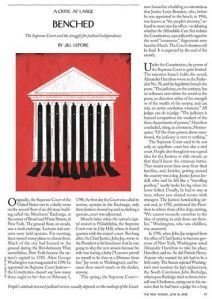
Here’s the deal. Two thoughts have conflated. One occurred while watching the excellent final of Euro 2012 last night, before and after which we were invited to look back upon what has been a memorable tournament. It was at this point, as if to illustrate the deficiencies of my non-footballing brain, that I realised that I can’t even remember the scores, or the goal-scorers, from most of the matches I have watched over the last three weeks. This is not just my 47-year-old mind going, as I can remember the names of actors from way down the cast of films that I shouldn’t even remember. It’s just that my brain isn’t tuned to football the way serious football fans’ brains are. (When I sat down to watch this one, after my traditional two-year sabbatical, I seriously couldn’t remember off the top of my head who’d won the 2010 World Cup, or Euro 2008. Both are imprinted there now, but ask me in a year’s time.)
The other thought was this: with the sad closure of Word magazine, a couple of people looking down the barrel of a dystopia with less printed words in have asked if a subscription to the New Yorker (one of a number of influences on Word in its prenatal stage) might help ease the pain. I have been a subscriber to the New Yorker since March 2005, when Stuart Maconie thoughtfully bought me a year’s subscription as a 40th birthday present. Once it started arriving on my mat once a week, I became quickly hooked. I can’t imagine a world without it. (It’s particularly handy at Presidential Election time, but not just, as I sincerely believe that to be disinterested in US politics is to be disinterested in global politics. And if anyone’s going to report from the frontline of American life, I’d prefer it to be a bunch of die-hard liberals.)
Anyway, it’s a struggle most weeks to get through the whole magazine. (I recycle mine by passing them on to a friend at Radio Times, who, when she’s done with them, passes them on again – I rarely give an issue up to this value-added cycle within a week of receiving it.) As such, I’m always in intellectual arrears. There’s enough brain food in a single issue to last a month. This means serious reading, and serious staying power. If you don’t know already, the pieces in the New Yorker are long. And detailed. To put them into context, the cover story I wrote about the Stone Roses for a recent issue of Word, which by definition will have been about the longest story in the issue, was 4,000 words. The double-page spread I write for Radio Times most weeks comes in at around 800. The New Yorker doesn’t have a cover story (it doesn’t even tell you what’s inside the issue on the cover), but its longest pieces can be more like 12,000 words. That’s a tenth of Where Did It All Go Right?
The New Yorker article I’m about to disseminate is about 5,000 words.
So, in order to counter the erosion of my memory, and to perhaps pass on some interesting information from a magazine that is jam-packed full of information (its fact-checking culture is legendary), I have decided to run an occasional series on this blog of articles about articles I have read.

This one, by Jill Lepore, was tucked away at the back of the Jun 18 issue (cover image above), and entitled, with typical elan and economy, Benched. It’s about the Supreme Court and was written before this august and powerful institution voted for “Obamacare” and surprised everybody. (I can’t wait to read this week’s New Yorker and its editors’ thoughts on what might be a turning point for Obama’s re-election chances.)
Essentially a history of the Supreme Court of the United States, forged in New York (then the nation’s capital; still the nation’s capital according to the New Yorker!) in 1789 when George Washington appointed six Supreme Court Justices, Lepore’s end-point is, clearly, the Affordable Care Act and whether or not today’s bench of nine decide that it violates the Constitution or not, vis-a-vis “commerce.” (Can the government constitutionally force its citizens to take out health insurance? Spoiler alert: yes it can.)
As Lepore states early on, “under the Constitution, the power of the Supreme Court is quite limited.” Its executive branch “holds the sword”, the legislative branch “the purse”, and the judiciary, neither; “no direction either of the strength or of the wealth of the society”. It’s tough for us Limeys to understand the Supreme Court, as we don’t have one, but if there’s one subject that comes up more frequently in the New Yorker than baseball and/or whatever Malcolm Gladwell is thinking about, it’s the Supreme Court, so it’s as well to do some homework, which is what this feature turned out to be, and why I ploughed through all 5,000 words of it.
I discovered that, under George Washington, the Justices of the Supreme Court were expected to “ride circuit” (one of those great phrases that make reading this magazine such a thrill), in other words, they were expected to judge ordinary cases as well as supreme ones, as it were. But this was scrapped. It’s basic stuff to American history students, but I now know that in 1800, the capital moved to Washington, D.C., and the following year president John Adams (Paul Giamatti) was the first to live in the White House, while Congress met at the Capitol. His Chief Justice ensured that all the Justices rented rooms at the same boarding house, “so that they could at least have someplace to talk together, unobserved.”
Under Adams, the 1801 Judiciary Act reduced the number of Supreme Court Justices to five. I’m afraid I didn’t quite catch when this was engorged to the present nine. Under Jefferson, the Supreme Court was granted the right to decide whether laws passed by Congress are constitutional. (“This was such an astonishing thing to do that the Court didn’t declare another federal law unconstitutional for fifty-four years.”) Article I, Section 8, of the Constitution: “Congress shall have power … to regulate Commerce with foreign Nations, and among the several States, and with the Indian Tribes.” During the New Deal in the 1930s, the “power to regulate commerce,” along with the definition of “commerce” itself, became the chief means by which Congress passed legislation “protecting people against an unbridled market.” (In 1964, the commerce clause formed part of the basis for the Civil Rights Act.) As you can guess, the solid Democrat base of the New Yorker means that the Supreme Court’s power to fiddle with commerce – that “unbridled market” which gives Republicans such an under-the-desk hard-on – is taken on trust as a good thing. To the right, it’s bad.
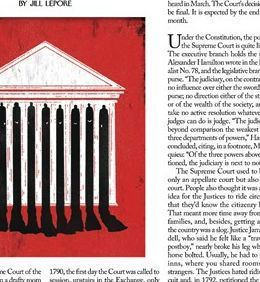
There are lots of landmark rulings cited along the way – Lochner v. New York in 1905, where the Court “voided a state law establishing that bakers could work no longer than ten hours a day, six days a week”, on the grounds that the law violated a “liberty of contract” (cue: sound of employers rubbing their hands in glee); U.S. v. Lopez, in which it was decreed that gun ownership is not commerce, “because it is in no sense an economic activity”; U.S. v. Morrison, in which parts of the federal Violence Against Women Act were judged unconstitutional; and one that is enshrined in US lore: Dred Scott v. Sandford (“Dred Scott”), which in 1857 voided the Missouri Compromise by arguing that Congress could not prohibit slavery in the territories, and effectively put slaves and their descendents outside of the constitution.
Lepore’s thesis, neatly woven through this chunky history, is simply that the Court is getting more political. Under game-changing arch-Federalist Chief Justice John Marshall’s 35 years in office – that’s six administrations from Adams to Jackson 1801-35 – we learn that the Court struck down only one act of Congress; by comparison, in the seven years since John G. Roberts, Jr. (a Bush appointee) took the job in 2005, the Court has struck down “a sizable number of federal laws, including one reforming the funding of political campaigns.” She describes it as “the most conservative court in modern times”, its rulings under Roberts pleasing the right 60% of the time, according to figures, which is way up basically.
We go back to the early American colonists, “who inherited from England a tradition in which the courts, like the legislature, were extensions of the crown.” Over here, a “defiant Parliament had been challenging the royal prerogative, demanding that judicial appointments be made not ‘at the king’s pleasure’ but ‘during good behavior.’” (This phrase “good behaviour”, which means, effectively, for life, recurs.) The Justices are chosen by the President and confirmed by the Senate, and it’s a gig for life. But who judges the judges?
Since it successfully rubbed out a “labor” law protecting the health of employees in favour of the employer, the aforementioned “Lochner” (known by just the one name) is said to have become “likely the most disreputable case in modern constitutional discourse.” (From where I’m sitting the American right are all for the individual, as long as that individual is an employer, not an employee.) In 1906, legal scholars rounded on it, one of them writing, “Putting courts into politics, and compelling judges to become politicians … has almost destroyed the traditional respect for the Bench.”

As ever with a New Yorker piece, you learn some things off the bat, and you have to do a bit of further reading to understand others. It’s casually referred to, but I had no idea what Theodore Roosevelt’s “Bull Moose campaign” was, for instance. So I checked. It was the nickname of a political party (the Progressive Party) he set up in 1912 after a Republican split, and after he’d been shot but claimed to be as fit as a bull moose. The building that still houses the Court across from the Capitol had its cornerstone laid on October 13, 1932, by Herbert Hoover and marble was shipped in from Spain, Italy, and Africa. Three weeks later, Franklin Roosevelt was elected in an actual landslide and those battles between Congress and the New Deal began. Exciting trivia: by June of 1933, less than 100 days after his inauguration, FDR had proposed 15 legislative elements and each had been made law, passed by the Court, whose four-out-of-nine conservative Justices were known as the Four Horsemen. During the passing of the 16th, one of the horsemen is said to have burst out, “The Constitution is gone!” (“a comment so unseemly that it was stricken from the record”).
The Supreme Court’s new building opened for business in 1935, described in the press as “a classical icebox decorated for some surreal reason by an insane upholsterer.” In the following 18 months, the newly-housed Justices struck down more than a dozen laws. “Congress kept passing them; the Court kept striking them down, generally 5-4. At one point, FDR’s Solicitor General fainted, right there in the courtroom.” You’ve got to love the way the best New Yorker writers humanise otherwise husk-dry material. It’s a detail like the fainting Solicitor General that could help you remember the trouble FDR had in the mid-30s.
Lepore sums up beautifully. “The Supreme Court has been deliberating in a temple of marble for three-quarters of a century. In March, it heard oral arguments about the Affordable Care Act. No one rode there in a horse and buggy.” She goes on, “The separation of law from politics for which the Revolution was fought has proved elusive. That’s not surprising – no such separation being wholly possible – but some years have been better than others. One of the worst was 2000, when the Court determined the outcome of a disputed Presidential election.”
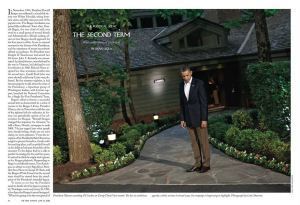
I started reading the New Yorker in 2005, when Bush was into the second term of that “disputed” election. His presidency gave the magazine’s liberals something to push against. They do not, though, let Obama off the hook, and a 9,500-word piece by Ryan Lizza in the same issue about what the President might do if re-elected (again, written before the Supreme Court judgement went Obamacare’s way) is, although hopeful, honestly argued and superbly contextual. But that’s enough learning for one day.
The full, six-page Supreme Court piece is available online. So have a read. The 12-page Obama re-election piece also happens to be online, in full. (They aren’t always, so this is a bit of luck.) The New Yorker is available in full, digitally, to subscribers and as an iPad edition. It’s almost 90 years old, but it moves with the times. However, with such a lot of words to read, I couldn’t possibly read it offscreen. I need my paper copy. And long may it abide.

June 29, 2012
I Skyed it
Apologies to all Sky refuseniks, as this week, I am forced by professional obligation to cover three whole programmes on Telly Addict that are only available to subscribers to the $3.76bn-contributing eighth of News Corp that provides satellite television. At least you can see a few clips, eh? We’re talking about Sky Atlantic’s big Monday Night Is Comedy Night launch, which includes Alan Partridge: Welcome To The Places Of My Life, Sky Atlantic; Veep, Sky Atlantic; and Walking & Talking, Sky Atlantic. I’ve also subjected myself to Man V Food on Dave; and its new sequel Man V Food Nation on The Good Food Channel. However, terrestrially, we have the terrific new cop show Line Of Duty on BBC2, so stop complaining, and, if you refuse to give money to Sky, I hope you didn’t pay to see Prometheus, which also goes to Rupert Murdoch, because News Corp owns 20th Century Fox, which forms a $6.9bn-contributing sixth of his media empire.








Whatever #1
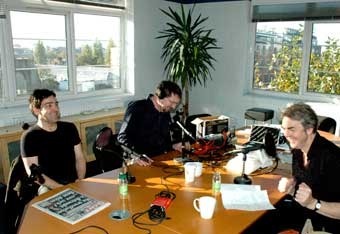
Here – elliptically illustrated by another nice photo I found from the good old days – is the first Whatever column I ever wrote for Word magazine. It’s about the craze for giveaway wallcharts that was, in October 2006 when I wrote it, sweeping Fleet Street. The specifics may be dated, but many of my worries at the time, and the protectionist warmth I felt for the printed word, seem entirely relevant, and depressingly prescient. I’m not going to reprint all my columns, by the way, but I thought, for old times’ sake, the first one would be OK.
WHATEVER by Andrew Collins [originally published in Word, issue dated December 2006]
Why are newspapers going to the wall?
Back in that faraway age we now call “the 90s”, the newspaper market was still divided along the following time-honoured lines: tabloids generated their revenue through copy sales, broadsheets through advertising. One traded in quantity, the other quality. One played bingo, the other didn’t.
But the times – and the Times – were a-changing. While circulation across the board had been in decline since the 80s, “pagination”, as they say in the print trade over a bun and a roll-up, was up. (Spinal injury units were backed up with paperboys disabled by the Sunday Times, up from 178 pages in 1984 to 362 in 1994. That’s a lot of unread articles about the lost tribes of the Amazon and Zandra Rhodes.)
It couldn’t go on like this. Hence, the great price war. In 1993, a master of the blunt instrument, Rupert Murdoch slashed the 25p cover price of the Sun to 20p (undercutting the Daily Mirror by 7p) and the Times down from 45p to 30p. When the Telegraph responded with a drop from 48p to 30p, the Times plummeted to 20p, and so it went.
Three years of this grubby huckstering only proved that editorial excellence is irrelevant; that most punters will take their news from the lowest bidder (the knockdown Times had doubled its circulation by 1997, the self-anointed TV Quick of Fleet Street). Meanwhile, aggregate newspaper circulation was only up by 0.4 per cent. In other words, for all the deckchair-rearrangement, tabloids and broadsheets were still basically chasing the same bunch of readers.
The Guardian, lest we forget, did not lower its price during the 93-97 conflict, and yet its circulation held steady, proving that some readers are more brand-loyal than others, even those to whom “brand” is a mucky word. Which is why, as a dogged loyalist – and occasional contributor – it pains me ideologically to see “my” paper reduced to giving away CDs and DVDs as free gifts. But since broadsheets went tabloid, creating one big no-man’s land in the newspaper war, there is no room for ideology.
I think we can all apocalyptically agree that these are the last days for traditional electronic software delivery formats. Thanks to their ubiquity in bagged-up national newspapers, silver discs are even more devalued than when AOL used to post them through your letterbox. And just in time, since we’ll all be downloading our music and films next week anyway. It’s the entertainment sector’s closing-down sale. Fact: if the Mirror are giving you Carry On Christmas for free, it’s either old stock or an incentive to buy further titles in a range of reissues, usually advertised off the page as part of the tie-in deal. There’s no such thing as a free Naked Lunch.
If you can put up with the cardboard sleeve and the fact that you’ll never be able to find it again, The Wild Geese is indeed yours to keep for nothing. And if you don’t normally buy the Mail but did so exclusively to add this geriatric war movie to your collection, your custom has been successfully bought.
The irony of this “sampling” exercise (ie. grab for new readers) is that demographic bets are always hedged by the choice of film. Thus, the Independent preaches to the choir by offering its captive metropolitan trendies Roberto Rosselini’s Francesco giullare di Dio; the Sunday Times sums up its readership with Howards End (middle-class aspirational), and Ring Of Bright Water the Mail (would join Countryside Alliance if actually lived in countryside).
Like the arms race, the Great Silver Rush won’t stop until one of them blinks. In May, the Guardian switched tactic, inspired by the “roughage effect” of all those teach-yourself language CDs in rival rags. Its educational wallcharts – birds, sharks, fungi – proved promotional gold: new, dirt-cheap to produce, and no need to bag.
So what if the posters looked a bit murky and were educationally flawed, thanks to being bought in from a Danish company, The Scandinavian Fishing Yearbook. Birds Of Sea And Shore lacked a lapwing, one of our most common waders, pictured a Scandinavian eider and showed the speckled female Pochard rather than the more distinct adult male, with its beautiful chestnut brown head and pale back and flanks. (By the time of the Guardian’s second batch, a pathetic disclaimer was added: “This is a selection of species and not a definitive collection. It may include species that are not or no longer indigenous to Britain.”)
But we birders quibble over detail when cash registers are ringing. The Guardian was the only “quality daily” to increase circulation in May. The wallcharts worked their blu-tack magic, shifting 130,000 extra copies during birds-sharks-fungi week. Scenting money, the Independent did a blatant copycat set: British Trees, The Human Body, A Guide To The Weather – no, really – and a “life size” human skeleton (whose completion depended on you getting all five – clever!). The Mail was next to go to the wall.
Do these wallcharts say anything profound about us as a nation? That learning is the new rock and roll? No. Parents collect them for kids who’d actually rather cheat their GCSE coursework off the Internet. They are simply the spoils of war. But do as I do, and keep buying them, because the actual print apocalypse is being rehearsed in London right now, with two new “freesheets” locked in battle, forcing the Evening Standard to lower its price to … nothing. They can’t *give* it away.
Editorial excellence will count for nothing in a world where the newspapers themselves are the free gifts. Make a wallchart out of that.
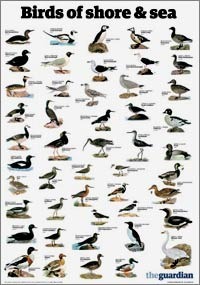








Goodnight, sweethearts
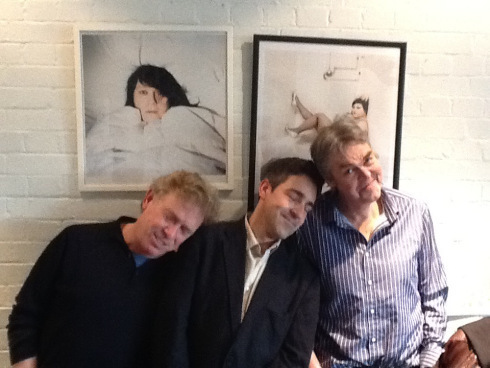
A very sad day. The Word magazine, which I never called The Word magazine because I knew it when it was just Word magazine, has closed. The staff found out last night, just after “passing” the latest issue, Word 114, which when it comes out in a week or so, will be the last issue, also. The announcement by David Hepworth came this morning. It was a shock to us all, reader and contributor alike.
I’m kind of guessing I don’t need to spell out what was so unique and warm and special about what was, to all intents and purposes, a music mag but, to many other intents and purposes, was so much more than that. I suspect the crossover between the readers of this blog and the readers of Word is pretty substantial, and not just because I’ve written for the magazine since its inception, nine years ago.
It was launched, along with the independent publisher that published it, Development Hell, by people I’d known and worked under and alongside at what was once called Emap in the 1990s: David Hepworth and Jerry Perkins, with Mark Ellen as editor. Mark and another key launch figure Andrew Harrison had been my editors at Select when I first defected from the NME in 1993. Dave, an editorial director at Emap, subsequently interviewed me for my first job at Q. The four of us attended the same awards ceremonies, conferences and meetings for all of the five years I worked there. When they themselves defected, it was like coming home being asked to write for Word, which was their dream project. (For further crossover, gentleman scribe Paul Du Noyer had been there at the launch of Q and Mojo; “Seventies” Mike Johnson had worked as a sub at Q when I was editor; Jonathan Sellers, art editor, had been art director at Select when I was features editor; contributor Barry McIlheney had been all of our bosses, MD of Emap; contributor and creator of the always-excellent trivia page at the back, John Naughton, had been a key man at Q; other contributors with Emap form included Stuart Maconie, Jim Irvin, Mixmag‘s Joe Muggs and David Quantick. You can see why Word felt like a nine-year, post-grad PhD for so many of us.)
Thanks to its enviable address book, the mag was also able to get legends of the calibre of Charles Shaar Murray and Danny Baker regularly onto the page. And let us not overlook the writers and editors that Word magazine did not bring with them in the boot from the world of Emap, but who became in many ways even more vital to the constant turnover of ideas and wise prose, some staff, mostly freelancers: Rob Fitzpatrick, Jude Rogers, Kate Mossman, Matt Hall (now my boss at the Guardian, then the only man who could work a podcast), Nige Tassell, James Medd, Chris Bray, Graeme Thompson, Ali Caterall, and the mighty Fraser Lewry, an icon in his own way. Sorry if I’ve forgotten anybody.
I don’t have the first issue to hand, with Nick Cave on the cover, but I have a funny feeling I didn’t have anything in it. Certainly, a long piece about how to write for EastEnders was my maiden contribution. It was in 2004 that Mark gave me my own column, a TV review initially, called Telly Addict (hmmm, nice title), but this transmuted into a column about whatever was on my mind in late 2006, called Whatever. No one had ever given me a regular column before. It occasionally attracted criticism and ire in the letters pages and in the forums, but it’s better to be noticed than not. It was an education. (It taught me to keep some of my views to myself.)
Although Word was aimed at a demographic too old to worry about being cool but not old enough to kick the habit of loving and purchasing music old and new, it embraced technology (not least because of Andrew Harrison’s magpie instinct for such stuff), and its website and podcast helped to grow Word, or The Word, into a brand, a community, a way of life. It rewarded subscribers, stretched to an iPad edition, put on its own splendid gigs, carried a not-quite-but-almost-New-Yorker-esque amount of words, and – perhaps its most significant badge of honour, for me – put illustrations on the cover, some as sublimely beautiful as this one.
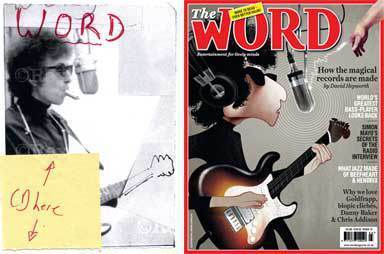
I was lucky enough to be part of the circle of trust, from which regular podcast guests were plucked, although if they hadn’t invited me up to Word Towers in Islington for a while, I had no qualms about asking to be invited. If you heard me shooting the merry breeze with Mark, and Dave, and Fraser, and Kate, it was generally because I’d emailed Dave and said, “Hey, if you’re short of a podcast guest … ” (I expect other regulars felt the same way.) But you didn’t have to work for the magazine to be in its club. The “Massive” were brain-picked from very early on, and often held shoulder-high and paraded around the place, whether as forumeers or gig regulars or providers of citizen copy. In many ways, Word had to stay small (or “niche”) to survive – a bit like 6 Music, which seemed to chime with the magazine’s attitude and plurality and launched at roughly the same time. But being small also means you’re vulnerable.
Development Hell survives. It publishes Mixmag, which is perhaps even more niche, but niche enough to attract niche advertisers and tick over. Long may it support the company, which remains essentially independent, and run by good people. The printed word? We all know it’s an endangered concept. But we don’t wish to see magazines we’ve grown to look forward to arriving on our doormats, and which we cherish, and fondle, and interact with, and rely upon for sustenance in an increasingly vanilla, pasteurised, market-led world, disappear from view.
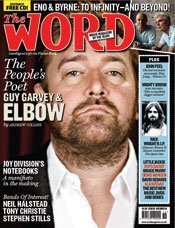
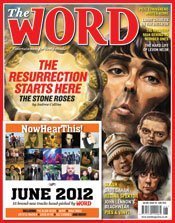
As a writer, I think I might have possibly done some of my best writing for Word. If so, it’s because a) they gave their writers the freedom to stretch their legs, but not to overindulge and only to a clear brief, b) you were always sensitively but firmly edited (Mark may seem like a soft touch, and he kind of is, but he’ll also let you know if you’ve gone wrong, or created a cul-de-sac of solipsism, and has spiked at least one of my columns for this reason in the past), and c) you were mainly asked to review things you thought you might like. Since very little of what we all wrote was published online, it is for collectors of the magazines to look back on. I might publish a couple of my columns on this blog, just so they’re out there. But maybe not the one about squirrel racism, or the one about militant atheism. (I only wrote two covers stories for Word, pictured above, and they both made me feel inordinately proud, and a bit like a journalist again.)
We must raise a glass to this great institution. It’s like a library has closed, as I wrote on the Word forum this morning (and where a condolence book is expanding faster than Prince William’s bald patch), but a library where you knew all the staff and they knew you, and where there was a bar, and live music, and a quiz, and you never got charged if you brought a book back late, as long as you were prepared to sit down and have a constructive and tangential dialogue about it over a pint.








June 22, 2012
Class Britannia
No Euro 2012 on this week’s Telly Addict, even though, in actuality, that’s what I have mainly been addicted to on my telly. Between games, I have thoroughly enjoyed seeing both Punk Britannia on BBC4 and All In The Best Possible Taste on C4 through to their respective three-part conclusions; also, a curiosity, True Love, which BBC1 ran across five nights, except it was really four as they chucked the last two out back-to-back, despite the top-drawer cast, as if perhaps trying to get rid of this original drama series, part-improvised, by Dominic Savage. You decide.

June 21, 2012
Wide men can’t jump
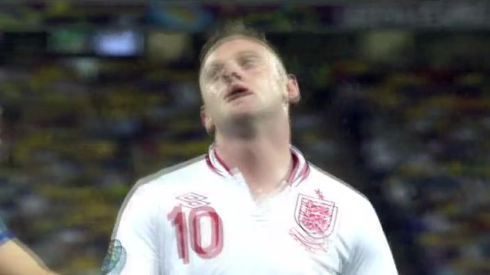
Ah, Euro 2012. Just because I’ve not had the time to write about it, don’t for one moment think I’ve not been following it like a proper football fan. I’m football crazy. Although still desolate without the traditional Guardian booklet with which to guide myself through the jungle of new names and managers (and too late to pick up the recommended When Saturday Comes equivalent – in two years’ time I won’t be so tardy), I’ve seen the majority of the games, except when two are playing concurrently.
As is traditional, the tournament has increased my intake of beer. I suspect it’s the weather, too, but I can no more avoid falling into the cliché of a male football fan on the sofa with a glass of lager and a barrage of shouty advice for the players on the screen than I can avoid falling into the cliché of a Guardian reader going on about Grayson Perry. There is, as Perry indeed noted on his glorious C4 series about class, comfort in conformity. I have yet to watch any Euro 2012 in mixed company, and I run past pubs showing it, as I fear my deficiencies of contextual knowledge would expose me to ridicule. At home I’m safe.
I have no idea, for instance, who Wellbeck and Lescott and Milner and Young play for when they’re not playing for England. I’m pretty certain that Torres and Ronaldo play for English Premiership clubs, and I can make a stab at which ones, but in one way, it doesn’t matter. I’m watching Euro 2012 for its own merits. Wellbeck plays for England. Torres plays for Spain. That’s all that matters to me. While I have vertigo-inducing respect for those that follow league football and balance and reassess its administrative intricacies at all times, as I’ve said, I don’t have the spare brain power. For me, it’s like going on holiday once every two years. (Which is ironic, as I don’t go on actual holiday even that often.) I’ve just realised I don’t know Torres’ first name. Respect me!
This summer, I’m vacationing in Poland and Ukraine – unlike the cast-strapped BBC pundits, who are alone in Salford, acting like Star Wars characters against a constant green-screen. (If the BBC was allowed to lie like it used to in the good old days, it could easily drop in a Warsaw backdrop and make it look as if Gary and Alan and Alan and Alan were there.) So, we’re out of the group stage and facing the quarter finals. I find it difficult to believe that England won their group, and even more difficult to believe that the goal-line decision on Ukraine’s would-be equaliser actually went our way. (I mean, it was over the line, wasn’t it? I think it was the ITV commentator who adjudged it “karmic”, a sort of existential payback for all the times when such an anomaly went against England. I can live with that. It’s not an exact science, after all; it’s a load of overpaid, spitting male philanderers chucking themselves at each other, and without the balletic beauty of slow motion. Borderline things happen.)
Still, it’s a result for me personally, as I am attending a family function on Saturday night that would have been – shall we say – affected by a potential England quarter final at 7.45pm. As it stands, those who would not have been able to miss such a thing will presumably be persuaded to join the party while Spain play France, as thrilling as that would surely be.
It’s never a walk in the park following England’s progress through an international championship. They have a habit of displaying bursts of promise, and then urinating that promise up the wall at a later stage. To have held France to a 1-1 draw was a surprisingly positive start last Monday, and to have provided us with three goals against Sweden from three relatively new players (completely new to me, of course, in the case of Wellbeck and Carroll, although I remember Walcott – which we are childishly pronouncing in the Germanic way for no reason whatsoever in our house – when he was Sven’s wild card at World Cup 2006 when all the famous strikers were injured) was a treat beyond our expectations. It’s amazing to see any goals, especially when teams of lofty reputation like Sweden, Holland, Italy and Germany had been coming up with frustrating results like 1-1 and 1-0 in those early games.
I am a seasoned enough watcher of the sport to know that it’s not all about number of goals scored, and that a 0-0 draw can be thrilling, but at this level – as we veterans say – you expect such a lot. I was sad if not surprised to see the Republic of Ireland go out, although the team’s fans seemed a hell of a lot cheerier in defeat than Roy Keane did at any time back in the studio. (I don’t know that much about him except that he was a national hero, but he seems a right grump, totally immune to the Fantasy Football atmosphere Adrian Chiles is charged with whipping up by ITV.)
I don’t know which pundits I am allowed to like. I sense that Alan Hansen is widely derided, but I can’t let a consensus that has been decided while I was out of the room affect me. I don’t mind him and his pompous manner and propensity to be wrong. Lineker’s been working out too much in the gym and does not fit into his expensively fitted shirts around the shoulders and tops of his arms, which is a problem that needs addressing. On the other side, Chiles seems in his element, which you can’t take away from him, not after his unfortunate experiences on the rollercoaster of daytime; he just prefers the social company of men, clearly. I can’t understand Carragher. I think Andy Townsend is funny, whether he’s meant to be or not, and it took me a while to work out that he was referring to players as “wide men” and not “white men.” I’m sure he didn’t coin the phrase “skyed it” but he was the first commentator I heard say it, so I use it in his honour every time a player kicks a ball high over the top of the net. (Every two years, I dust down “he couldn’t get on the end of it”, “flick on”, “making chances”, and “they closed him down”, too. Such evocative language! Who wouldn’t be delighted by it?)
I have been fascinated to hear the chant of Seven Nation Army by the White Stripes every time a goal is scored. Does Jack White know about this? Does he get royalties? And is it actually being played out over the PA, or is it just in the gift of the crowd? (A helpful 6 Music listener emailed in and suggested it had begun in this country and has been exported. Is this so?)
See, I’m into it. It’s dominating my evenings and it’s causing me to leave the office early so that I can settle down in time for kick-off (or, in the case of ITV, about half an hour after kick-off, so that we can fast-forward through the adverts for betting shops – there are enough adverts during the games without being assailed by them at half time).
I can confidently say that part of me wishes Wayne Rooney hadn’t been played in the Ukraine match, even though he scored the decisive goal with his extended head. I think having an iconic, talismanic player on the squad can be detrimental to team solidarity. If England “expects” one man to shoulder the whole burden, it allows the others to defer. But look at Wellbeck, Carroll and Walcott (sub) against Sweden! Out of the shadow of Rooney, they bloomed – and it looked like Hodgson had moved the chess pieces around with skill, timing and foresight. Or at least, this is how it looked from my part-timer’s sofa. I am the armchair manager’s worst nightmare: the armchair manager who doesn’t even bother to turn up for work for two years at a time! Fear me!
Heavens, I’ve just written about 1,200 words on the football. Better get back to work, so that I can leave work and watch the football. I must admit, I have enjoyed watching Portugal, who have the most tattooed arms in the tournament now that Denmark and Ukraine are out, I think. Maybe there are a lot of tractors in Portugal.

June 15, 2012
Game Of Throw-Ins
Come on! Even if you don’t watch Telly Addict, you have to admit, that is pun of the year. My exec producer at the Guardian asked me to step outside my “comfort zone” and review Euro 2012, but the joke’s on him, as it’s widely known that I am a two-yearly football fan and that the Euros are well in my comfort zone! So, for your consideration this week: MOTD: Euro 2012 on BBC1; Euro 2012 on ITV1; and All In The Best Possible Taste with Grayson Perry on C4. Got a bit carried away with the football, I admit, so I promise to review Punk Britannia on BBC4 next week, when it reaches its conclusion. Game Of Throw-Ins? I’m taking half a day off.

June 13, 2012
He skyed it

Looking back on previous international football tournaments, which are my cue to become interested in football for a couple of weeks every two years, it amazes me that I somehow had the time to “review” individual matches. I’m impressed with myself. Not at the layman’s articulacy with which I captured a sport which I spend most of my life not watching, but at the sheer dedication, and at the sheer spare time I seem to have had in 2010, 2008 and 2006 (before which I wasn’t blogging).
This is essentially what I wrote before the last World Cup, and it still stands. It is important to know it. I do not follow football. I don’t have a team. As a boy, I never went to see the Cobblers play, although I followed league football with fervour and could draw every club badge from memory, as well as name every squad and ground. I collected the stickers, and knew who played for whom in the First Division and even some of the teams in the Second. I supported Liverpool, and then Leeds, and to know why I switched you’ll have to read the Leeds Mug chapter of Where Did It All Go Right?, which is available for 1p on Amazon. I realise I am every true football fan’s worst nightmare: someone who takes a keen interest in football once ever two years ie. for the international tournaments. For these, I throw myself into the stats and personnel and even fill in the scores in my Guardian guide. Or at least, I have done for as long as I can remember, but NOT THIS YEAR. This year, due I can only assume to the general penny-pinching of the print media as it looks down the barrel of extinction in the digital age, the Guardian have not supplied a pull-out guide packed with essential information for the casual fan. I am bereft without it, and didn’t think to pick up another paper which did have a guide in it. It’s too late now. I know all the information and commentary will be online, but I don’t have a smartphone at my side while watching the telly, nor do I wish to. And it’s not just about filling in the results. It is a bit about that, as the last World Cup’s guide proves:
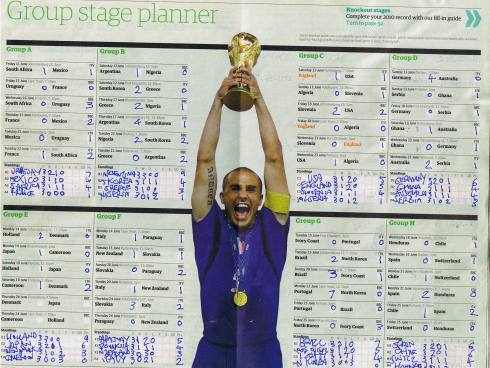
Anyway, on with my disclaimer. If I was one of those people who followed football on a religious, weekly basis, I would find me irritating or even heretical. But please don’t. I won’t be standing in a pub pretending I know all about football for the next couple of weeks. I won’t be pretending anywhere. I’ll be at home, watching the matches, and only supporting England through geographical accident of birth. I shan’t be painting my face.
I am already following their progress with interest and enthusiasm, but not to the point where I will fly a flag (I think you know how I feel about the flag), or weep when they go out. I actually like watching the other teams more. During the World Cup I became particularly fond of the African and Eastern European nations. I liked both France and Italy in 2006, and enjoyed the final – until Zidane did “the stupid thing” – without partisanship. I do not hate the Germans, either.
I enjoy the nature of the TV coverage, identifying the voices of the commentators and pundits, picking up on their cliches, and I love the roar of the crowd, even when it’s through the speakers of my TV. You won’t find me watching football in public. But I do cheer and boo at home. Especially if I’ve had a small beer. And I do shout at the screen.
Here is my review of the 2006 World Cup final. If you scout around previous entries at that time, July 2006, you can read other reviews and get a flavour of how a football lightweight covers such a tournament. Also, Euro 2008 is covered; just look up June 2008 in the archives over there on the right. As I say, I’m quite proud of my efforts looking back. I wrote a series of “essays” for the 2010 World Cup – “essay” being a subtle pun on SA, South Africa. The first is here, and the rest are nearby.

I won’t be “reviewing” matches this year, as I simply do not have the luxury of time. I’m busy writing two pilot scripts for two broadcasters and when I’m not doing that, writing bits and pieces for Word, and writing my Guardian TV review, and writing things for Radio Times. I’m jealous of myself in 2010, 2008 and 2006 for having the time to write so many words for free, for myself, for fun. I am, however, enjoying Euro 2012 and will be “reviewing” it for Telly Addict this week, with clips!
So far, I’m fascinated by how many players have one entire arm covered in tattoos, usually the left, although I think the Republic of Ireland’s Glenn Whelan has his right arm covered. I feel sure this has increased since the World Cup. See? That’s the fun of only watching football every two years; it’s like not seeing a niece or nephew for that amount of time and noticing changes that would be imperceptible to others closer to them. When the BBC’s Alan Shearer came on for the first time, for a split second I thought they’d sent his dad.
Oh, and I’m really enjoying what feels like a pretty new England team, while they’re still in the competition. So many names and faces I’ve never seen before! Wellbeck! Lescott! Young! The improbably-named Oxlade-Chamberlain! I pity the rest of you, with your rolling knowledge.
Anyway, on with the melodrama, the greasepaint and the well-recompensed spitting philanderers …

June 8, 2012
The end
Not the end of Telly Addict, thankfully, but the end of three big shows from the previous week: The Apprentice, Series 8, BBC1; The Voice UK, Series 1, BBC1; and Game Of Thrones, Season 2, Sky Atlantic. Clearly, if you’ve been avoiding finding out whose startup Lord Sugar invested £250,000 in, or who had the best “voice” according to that ragtag band of devotees still watching The Voice, don’t watch this week’s Telly Addict. (I’ve tried to steer clear of saying anything specific about Game Of Thrones, as many will see it on DVD, although the real fans have read the books anyway, and know everything. Whenever covering serials, especially those on Sky, to which many do not have access, I’ll always try to choose clips from early on in an episode.)

Andrew Collins's Blog
- Andrew Collins's profile
- 8 followers


